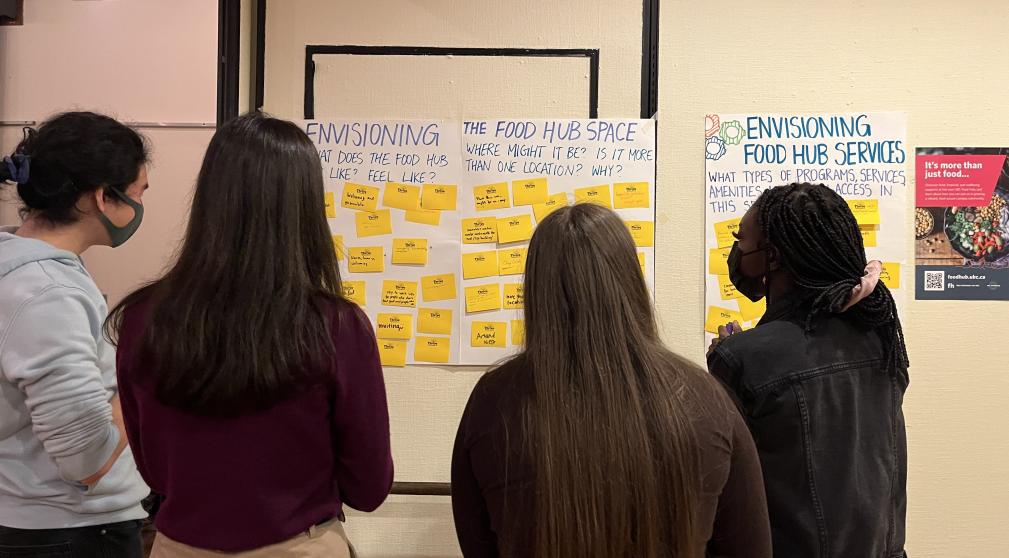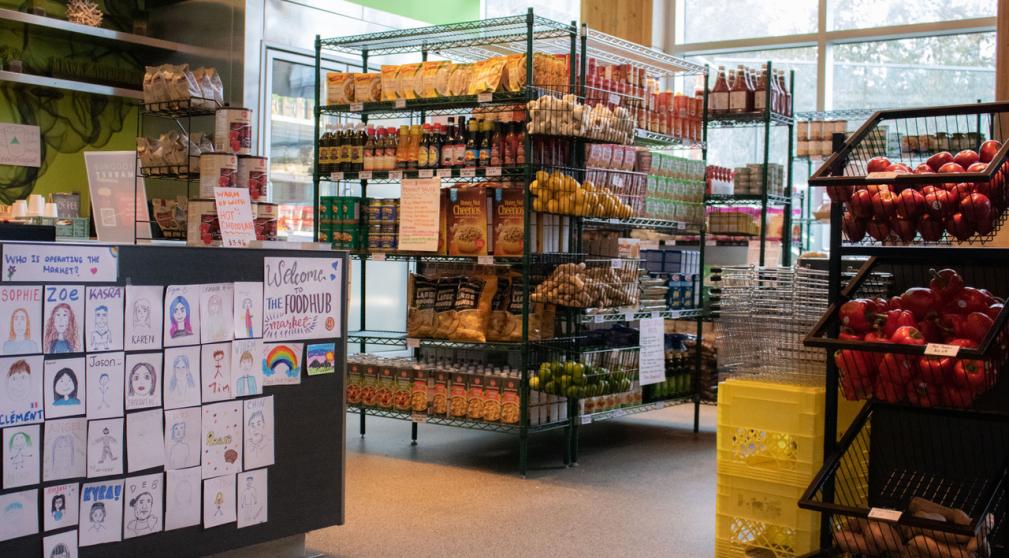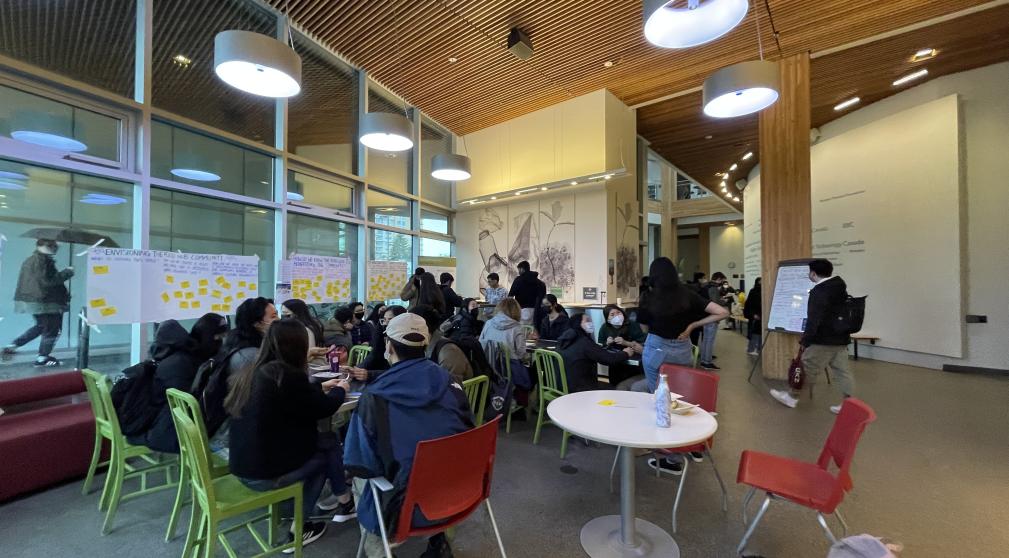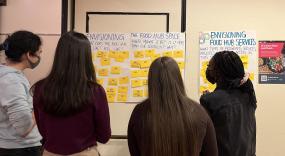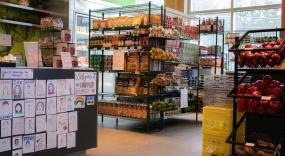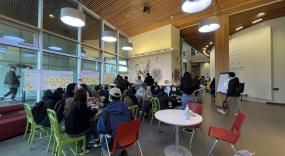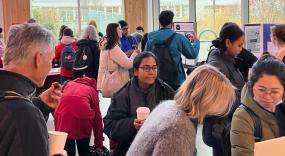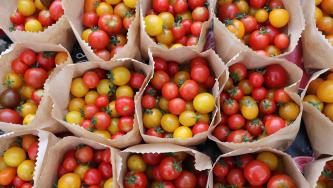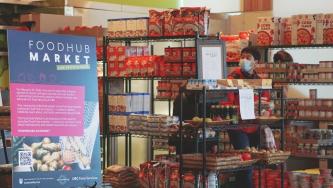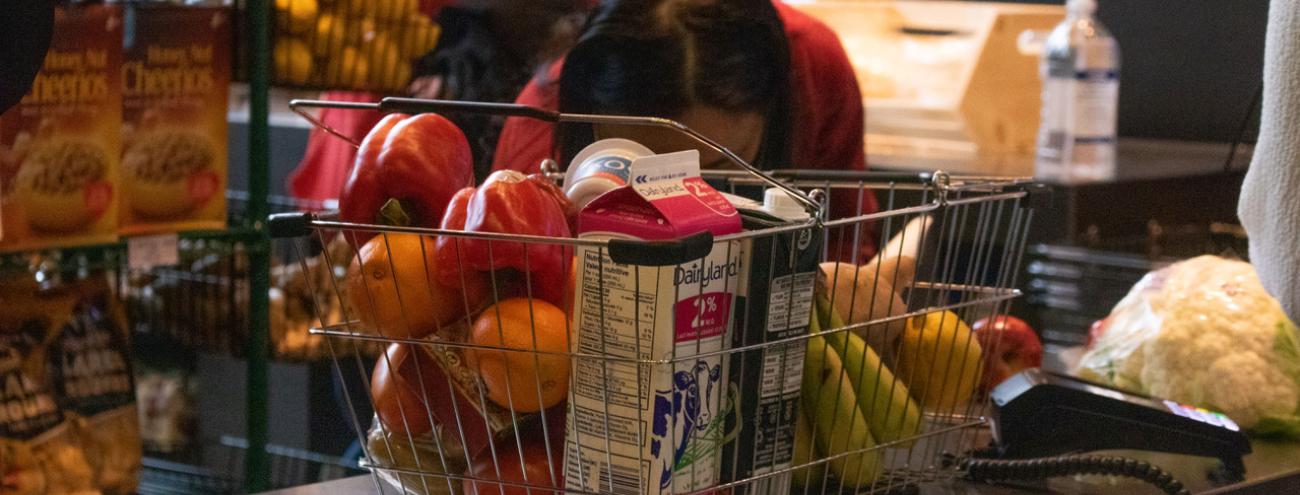
Community Food Hub
The Community Food Hub project aims to promote food security on campus by using a student-driven, research-led approach prioritizing community needs to provide support services and programs on the Vancouver campus.
Project team
Dr. Rachel Murphy, School of Population & Public Health, and BC Cancer
Sara Kozicky, UBC Wellbeing
Casey Hamilton, UBCO Campus Wellbeing and Education
The health impacts of food insecurity are significant and long-term, including increased risk of chronic conditions such as diabetes and heart problems as well as mental health issues like depression and suicidal ideation. Young people who experience hunger and stress in accessing food are more likely to have a chronic condition, and the effects of food insecurity – even if temporary – can reach well into adulthood.
Canadian higher education institutions consistently see approximately 30% - 40% of their students experiencing food insecurity1. For those that experience historic, persistent and systemic marginalization, such as international students, Indigenous students, students of color, transgender/non-binary students, and students living with a mental health condition or disability, the prevalence of food insecurity is higher.
Food banks – intended as temporary and emergency solutions – are now often seen as the primary approach for individuals to respond to their own food insecurity. However, additional support services and programs are needed into address the complex and potentially systemic factors that contribute to food insecurity within a community.
The UBC Community Food Hub project2 aims to create an integrated set of programs and services within a ‘hub’ that prioritizes the campus community’s food needs. The project used Community-Based Participatory Action Research (CBPAR) led by students to engage community members, piloting a community-led development approach. The project is also building relationships with food security stakeholders in the broader off-campus community, to support collective action through sharing research and best practices.
This Campus as a Living Lab project responds to an immediate need at UBC to reduce food insecurity experiences among our community, especially students, and to draw on academic research expertise to address systemic and longer-term problems that cause food insecurity.
Climate change, war and economic shifts are all impacting global agriculture practices and food prices, and this situation is likely to become more challenging in the next few years. The community-based approaches and lessons learned in developing the Community Food Hub could potentially be adapted and translated to other academic institutions across Canada, or to other non-academic communities facing food insecurity.
____________________
